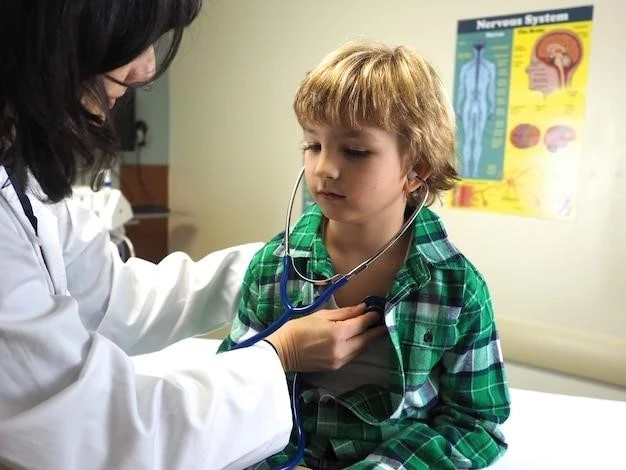Understanding Elliott–Ludman–Teebi Syndrome
When addressing the topic of Elliott–Ludman–Teebi syndrome, it is crucial to provide a comprehensive overview of this genetic disorder. From common symptoms and characteristics to diagnosis, treatment options, long-term outlook, and support resources for families, exploring each aspect will help in raising awareness and understanding around this condition.
Overview of Elliott–Ludman–Teebi Syndrome
Elliott-Ludman-Teebi Syndrome is a rare genetic disorder characterized by a range of physical and developmental challenges. Individuals with this syndrome often face developmental delays, intellectual disabilities, autism spectrum disorder, speech delays, seizures, microcephaly, craniofacial abnormalities, limb anomalies, short stature, hypotonia, and syndactyly. Understanding the complexity of this syndrome is key to providing appropriate care and support for affected individuals and their families. Stay informed about the latest research and treatment options to enhance the quality of life for those living with Elliott-Ludman-Teebi Syndrome.
Common Symptoms and Characteristics
Elliott-Ludman-Teebi Syndrome manifests with a variety of symptoms and characteristics. These can include developmental delays affecting speech and motor skills, intellectual disabilities, autism spectrum disorder traits, seizures, microcephaly (small head size), craniofacial abnormalities such as a prominent forehead, limb anomalies like syndactyly (webbed fingers/toes), short stature, and hypotonia (poor muscle tone). Recognizing these common features can aid in early diagnosis and intervention. It is important to consult healthcare professionals for individualized care plans tailored to manage the specific symptoms and challenges associated with Elliott-Ludman-Teebi Syndrome.

Diagnosis and Genetic Testing
Diagnosing Elliott-Ludman-Teebi Syndrome involves a thorough evaluation of the individual’s symptoms, medical history, and physical examination. Genetic testing plays a pivotal role in confirming the presence of this rare genetic disorder. Specific genetic tests, such as chromosomal microarray analysis or targeted gene sequencing, can identify the underlying genetic mutations associated with the syndrome. Consulting with genetic counselors and healthcare providers experienced in rare genetic conditions is essential for accurate diagnosis and appropriate management strategies. By pursuing timely and accurate genetic testing, individuals and families can gain insights into the condition, access necessary support services, and make informed decisions regarding treatment options.
Treatment Options
When it comes to managing Elliott-Ludman-Teebi Syndrome, a multidisciplinary approach is key. Treatment plans are usually tailored to address the specific symptoms and challenges faced by the individual. These may include therapies such as speech therapy for speech delays, occupational and physical therapy for motor skills development, behavioral interventions for autism spectrum disorder traits, and medication to control seizures if present. Additionally, early intervention programs and educational support can help individuals with developmental delays reach their full potential. Regular monitoring by healthcare providers and specialists can ensure that treatment strategies are continuously adjusted to meet the evolving needs of the individual. Collaborating with a team of healthcare professionals, educators, therapists, and support networks can make a significant difference in optimizing the quality of life for individuals living with Elliott-Ludman-Teebi Syndrome.
Long-term Outlook and Prognosis
Understanding the long-term outlook for individuals with Elliott-Ludman-Teebi Syndrome is crucial for families and caregivers. The prognosis can vary widely depending on the severity of symptoms and the presence of associated complications. While there is no cure for the syndrome, early intervention, ongoing therapies, and educational support can significantly improve the quality of life for affected individuals. With appropriate management strategies in place, many individuals can learn to overcome challenges, develop essential skills, and lead fulfilling lives. It is important for families to work closely with healthcare professionals to create personalized care plans that address the unique needs of the individual. By staying informed, proactive, and engaged in the treatment process, families can positively influence the long-term prognosis and overall well-being of individuals with Elliott-Ludman-Teebi Syndrome.
Research and Future Directions
Ongoing research plays a crucial role in advancing our understanding of Elliott-Ludman-Teebi Syndrome and improving treatment strategies. Scientists and healthcare professionals are continuously exploring the underlying genetic causes, potential risk factors, and novel interventions for this rare genetic disorder. By supporting research initiatives, individuals and families can contribute to the development of new therapies and approaches that may enhance the quality of life for those affected by the syndrome. It is essential to stay informed about the latest advancements in the field and participate in clinical trials when appropriate. Collaborating with researchers, advocacy groups, and healthcare providers can help shape future directions in the diagnosis, management, and overall care of individuals with Elliott-Ludman-Teebi Syndrome.
Support Resources for Families
For families navigating the complexities of Elliott-Ludman-Teebi Syndrome, access to support resources is invaluable. Connecting with support groups, online forums, and community organizations can provide a network of understanding and solidarity. These platforms offer opportunities to share experiences, gain insights from others facing similar challenges, and access information on available services and resources. Furthermore, seeking guidance from genetic counselors, therapists, and healthcare providers can offer tailored support and guidance in managing the unique needs of individuals with the syndrome. By actively engaging with support networks and exploring available resources, families can find emotional support, practical assistance, and a sense of community as they navigate the journey of caring for a loved one with Elliott-Ludman-Teebi Syndrome.
